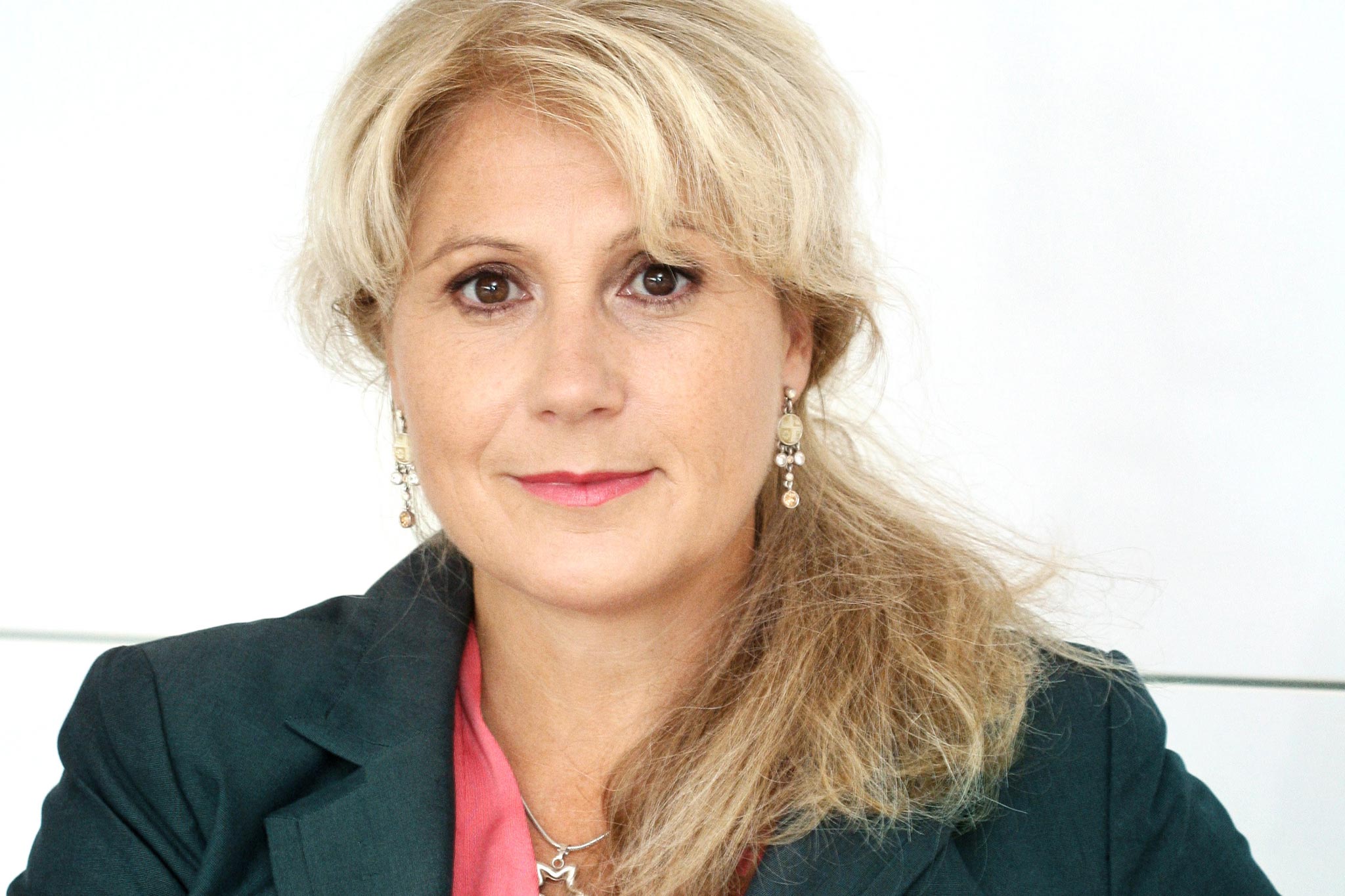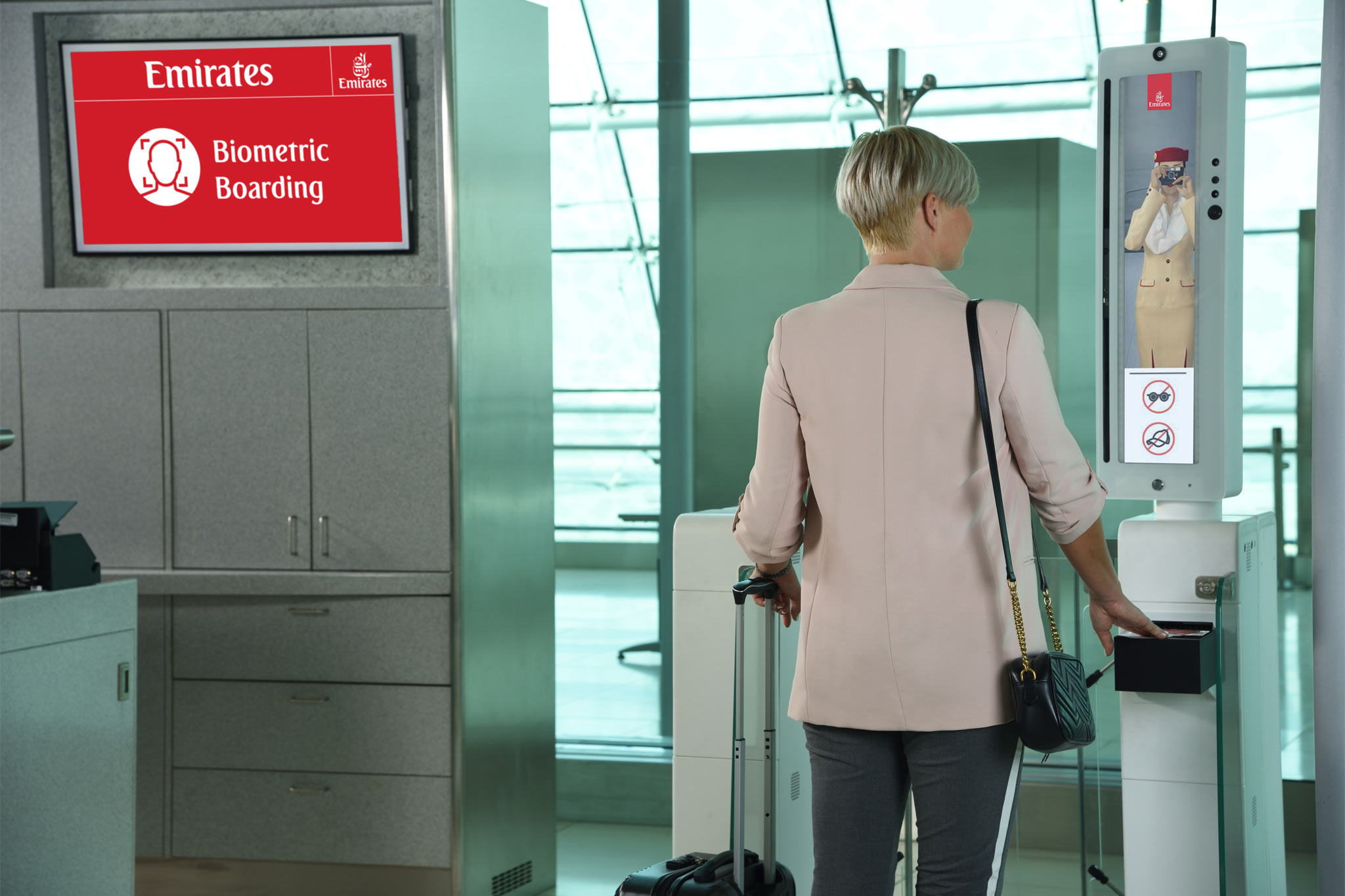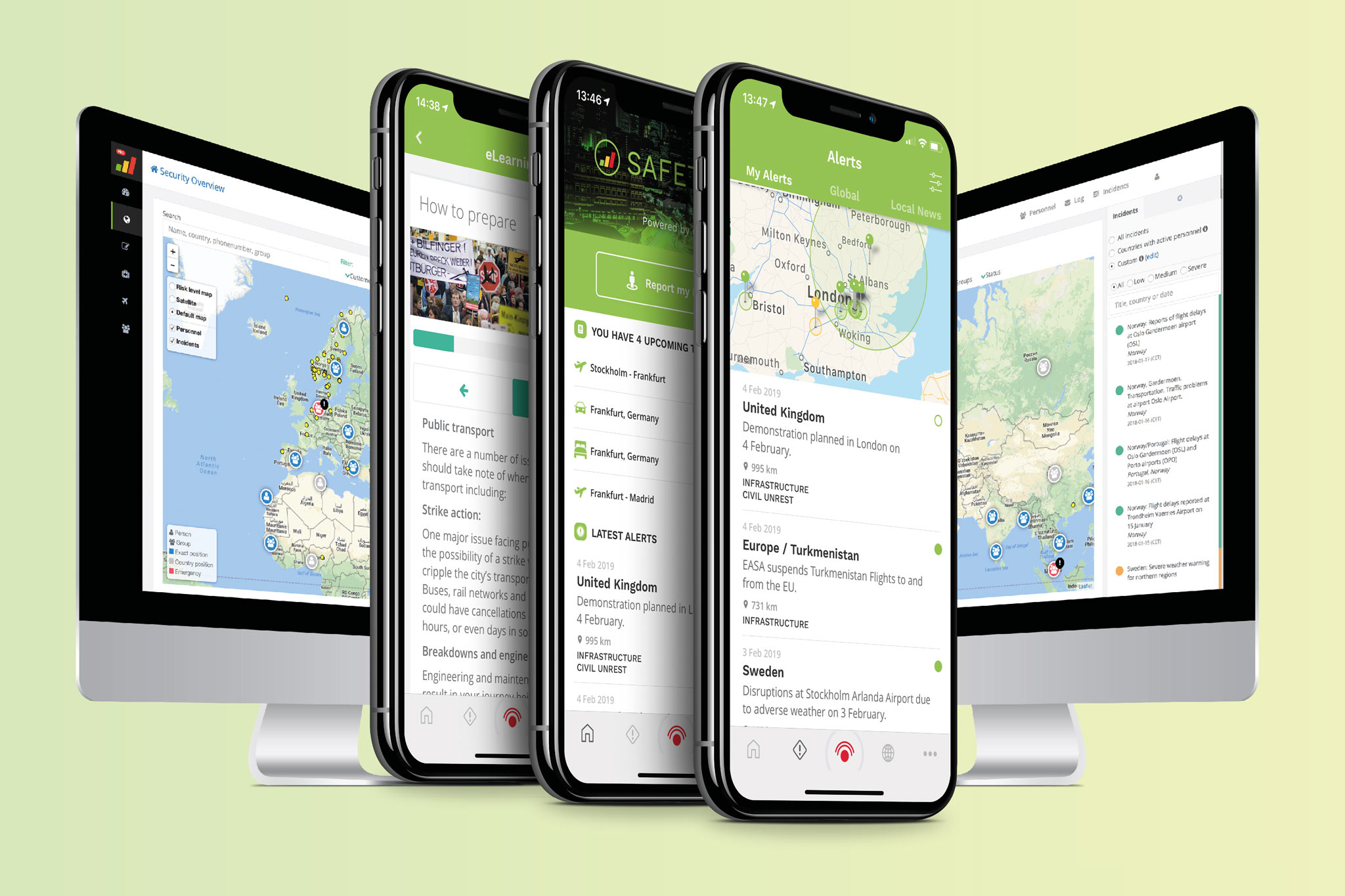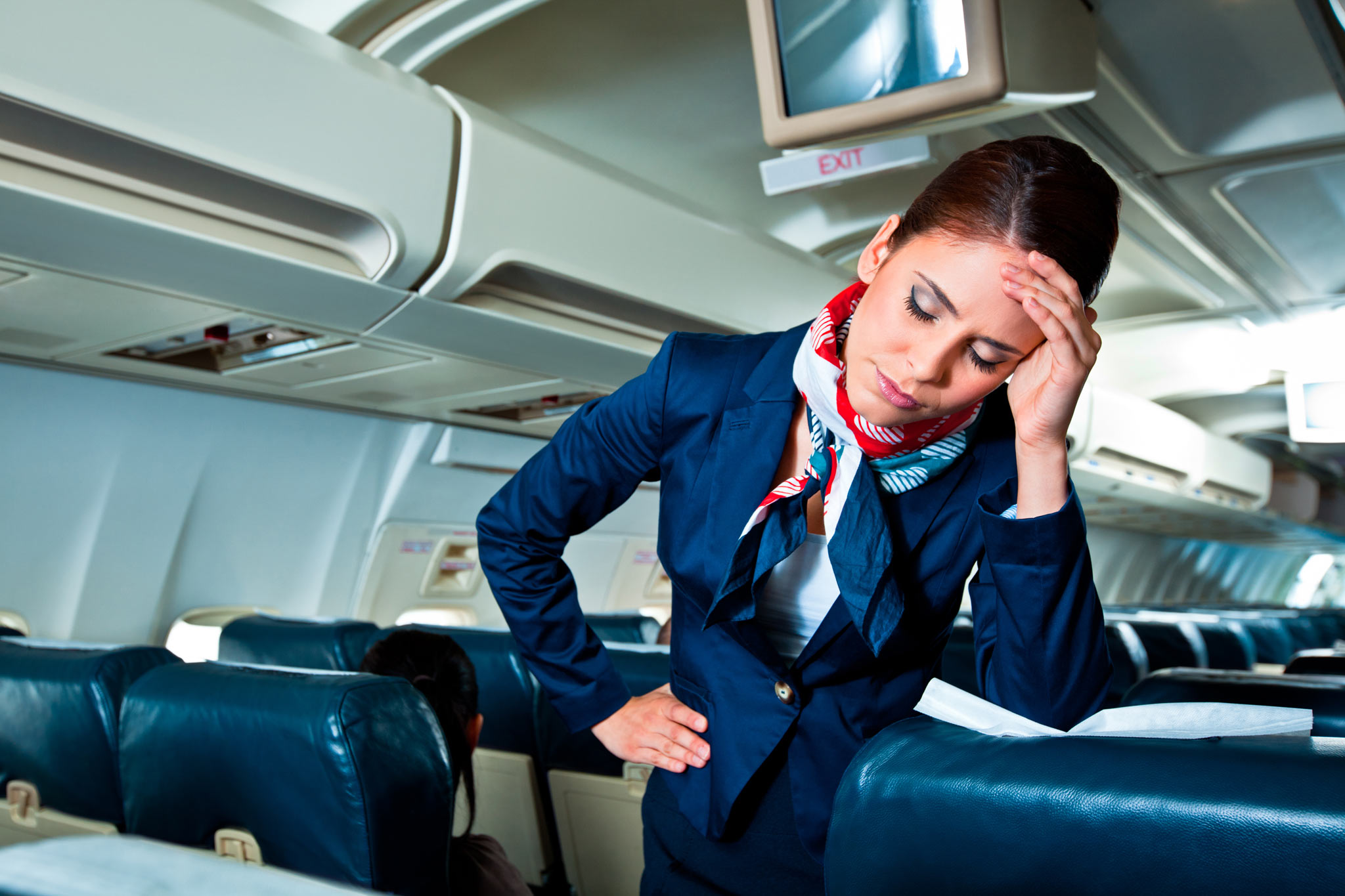The Swedish Business Travel Association, SBTA, asked its members what their managers and executives thought was the most important matter to focus on. The answer was: security issues. Lotten Fowler, the CEO of SBTA, says the organisation has about 250 member companies. The major company group, SBTA Global Network, currently has 12 globally active companies.
Is it possible to estimate how many hotels your members have agreements with in Sweden, Europe and worldwide?
“That’s virtually impossible, as we have such a large mix of member companies. There is everything from authorities that visit small Swedish destinations to multinational companies that, for example, travel to cities in China which you and I have never heard of,” says Lotten Fowler.
It almost goes without saying that we think about higher security when we travel internationally, but statistics show there are just as many incidents in Sweden, a country that is perceived by most people as safe.
It was ten years ago that security was tightened at all the world’s airports, including Sweden’s. However, many North Americans view the Nordic countries as a high-risk area since the caricature cartoons in Denmark and the “roundabout dog” installations of the artist Lars Vilks. Is it time for more hotels and meeting facilities to raise security standards?
“In general, I believe there is considerably high confidence in how Swedish hotels approach security. Our authorities’ requirements are many times higher than in most other parts of the world. What I think can make the difference is the education and training of personnel, and it’s here where investment is sometimes lacking.”
The time factor in alerting guests to alarms is perhaps the most significant issue in the case of a fire. Do SBTA’s members place their employees in hotels that do not have night staff?
“In general our member companies are aware of security issues and probably choose hotels with night staff to a great extent. In certain small towns perhaps there is no alternative, but night staff is important precisely because of the factor you mentioned, namely time.”
What do members think about communications and computer security?
“Many companies have hard firewalls and regulations concerning, for example, the use of public Wi-Fi. The issue is often one for the company’s IT department, but it’s my impression that travel managers and those responsible for trips are becoming more and more involved with IT and security departments regarding these issues. The informal networks within companies are tightening up.”
During many years of air travel, we have seen representatives of major Swedish companies reading confidential documents and discussing internal issues. It’s as if they assume nobody else can understand Swedish if, for example, they fly Dubai–Hyderabad or Seoul–Amsterdam.
“Naturally, it varies from company to company, but I know that the major companies have guidelines, for example in their introduction programme for new employees and in information on the travel portal.”
Your members presumably have agreements with a global travel company. Do you consider any of the major travel companies such as Amex, CWT, HRG or Resia as more advanced in the area of security than others?”
“All international travel agencies offer some type of product, but there are also many independent players in the market that have specialised in this area. Certain companies prefer an independent supplier, others prefer the benefits offered by an integrated product.”
What’s your assessment of security issues at hotels?
“Hotel security is important. At a hotel, the traveller is more vulnerable than otherwise, as this is where you relax, undress, sleep and so on. During the journey itself you are probably more alert than when you have arrived and are ready to rest.”
How much more important have these issues become in the last five years?
“Hotel security in itself has not really become more important, it’s rather that we have broadened the concept of security. From having talked about security during the flight itself and at the hotel, we now include everything under the term ”duty of care”. The company’s responsibility for its employees is far more in focus today. We travel more, more people travel, we travel to places we did not go to before, we perhaps travel to trouble spots regardless of whether there are disturbances or not. One example is infrastructure investment, which carries on despite troubles in a country.”
“The companies that do not safeguard their employees will be the ones that stand to lose out”
What do you think about Safehotels certification?
“There are few areas within the travel sector that are so non-standardised as hotels. Therefore, it’s good to have guidelines and methods that make comparisons easier. Safehotels also works hard on what I mentioned earlier: education and training of staff.”
Do your members book a security-certified hotel because it has been certified by Safehotels or because they already know it is a safe hotel?
“It‘s difficult for me to talk about what influences our member companies’ choices and to what degree one knows about Safehotels certification. But, I do know that hotel security is something that is always checked and documented in the choice of a hotel.
“We welcome all developments that make it easier to compare hotels with each other. And a certification whose content is known to us makes it undeniably easier to compare one hotel with another.”
Has SBTA an agreement with SOS Alarm for its members?
“We don’t make agreements on behalf of our member companies. We are a neutral platform where everything can be discussed, but decisions and agreements are made by individual companies.”
Is crisis preparedness something that is discussed between members?
“It varies greatly from company to company. I believe that most companies today have some kind of crisis plan, but it can differ widely. It’s difficult to compare a listed global company with a Swedish authority, or with a company that has 50 employees.”
Is security in mind when thinking about the location of hotel rooms? For example, situated near emergency exits, secure fire protection and preferably on floors two to eight, as no fire ladders reach higher than the eighth floor?
“I know many companies put those kinds of questions in their Request for Proposal. Hotel security is one of the selection criteria. Of course, its priority can differ from company to company.”
When talking about security, is there any discussion on whether companies should have a security plan?
“It’s not discussed at that level, as it depends very much on what type of company it concerns.”
How do your members regard collection for airport transfers?
“This differs a lot as well. Certain companies have only the company name, others have the person’s name, while some perhaps have a booking number.”
Do you offer members training in security matters?
“We have offered Safe Travel courses in cooperation with companies such as Safehotels. Many companies have internal courses, but we consider that it can be good to discuss ‘best practices’ with other travel managers/trip arrangers. We also arrange seminars about risk and security.”
If something happens, how is it reported?
“In large companies, it’s always reported to the security manager with copies to the travel manager if it relates to ‘during the trip’. It varies.”
What are the most important security issues for your members at the moment?
“We are talking about security and risk. How are you going to communicate with the traveller during the trip? How are you going to prepare the traveller? To what extent can, or should, we utilise existing technology for traveller tracking? We talk about integrity issues, and, for instance, what applies in different countries in terms of legislation.”
Are there instructions or rules for members when their employees are to hire a car?
“Practice differs from company to company. More and more, for example, are recommending a taxi instead of a car if you arrive late or have flown in. There are recommendations in our policy.”
How important will security issues be in five years?
“They will continue to be important. They will be discussed and developed in line with changing technology. But, I think that other parts of the sustainable approach will become more prominent, for example, the issue of traveller well-being. How do my employees feel as a result of business travel? An important question is the responsibility to create a travel programme that does not adversely affect employees’ health and family life. It’s significant, as expertise will be a commodity in short supply. The companies that do not safeguard their employees will be the ones that stand to lose out.”



